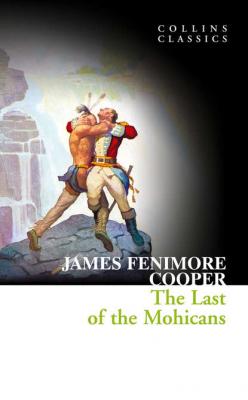The Last of the Mohicans. Джеймс Фенимор Купер
Читать онлайн.| Название | The Last of the Mohicans |
|---|---|
| Автор произведения | Джеймс Фенимор Купер |
| Жанр | Классическая проза |
| Серия | |
| Издательство | Классическая проза |
| Год выпуска | 0 |
| isbn | 9780007424597 |
THE LAST OF THE MOHICANS
James Fenimore Cooper
CONTENTS
CLASSIC LITERATURE: WORDS AND PHRASES
It is believed that the scene of this tale, and most of the information necessary to understand its allusions, are rendered sufficiently obvious to the reader in the text itself, or in the accompanying notes. Still, there is so much obscurity in the Indian traditions, and so much confusion in the Indian names, as to render some explanation useful.
Few men exhibit greater diversity, or, if we may so express it, greater antithesis of character, than the native warrior of North America. In war, he is daring, boastful, cunning, ruthless, self-denying, and self-devoted; in peace, just, generous, hospitable, revengeful, superstitious, modest, and commonly chaste. These are qualities, it is true, which do not distinguish all alike; but they are so far the predominating traits of these remarkable people, as to be characteristic.
It is generally believed the Aborigines of the American continent have an Asiatic origin. There are many physical as well as moral facts which corroborate this opinion, and some few would seem to weigh against it.
The colour of the Indian, the writer believes, is peculiar to himself; and while his cheek-bones have a very striking indication of a Tartar origin, his eyes have not. Climate may have great influence on the former, but it is difficult to see how it can have produced the substantial difference which exists in the latter. The imagery of the Indian, both in his poetry and his oratory, is Oriental—chastened, and, perhaps, improved, by the limited range of his practical knowledge. He draws his metaphors from the clouds, the seasons, the birds, the beasts, and the vegetable world. In this, perhaps, he does no more than any other energetic and imaginative race would do, being compelled to set bounds to fancy by experience; but the North American Indian clothes his ideas in dress which is different from that of the African, and is Oriental in itself. His language has the richness and sententious fullness of the Chinese. He will express a phrase in a word, and he will qualify the meaning of an entire sentence by a syllable; he will even convey different significations by the simplest inflections of the voice.
Philologists have said that there are but two or three languages, properly speaking, among all the numerous tribes which formerly occupied the country that now composes the United States. They ascribe the known difficulty one people have in understanding another to corruptions and dialects. The writer remembers to have been present at an interview between two chiefs of the great prairies west of the Mississippi, and when an interpreter was in attendance who spoke both their languages. The warriors appeared to be on the most friendly terms, and seemingly conversed much
